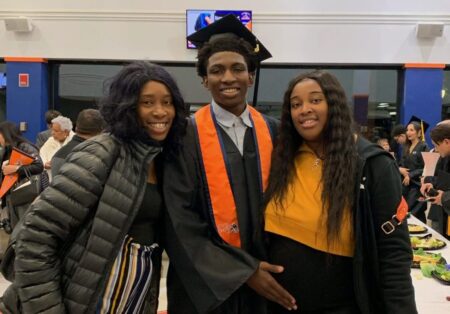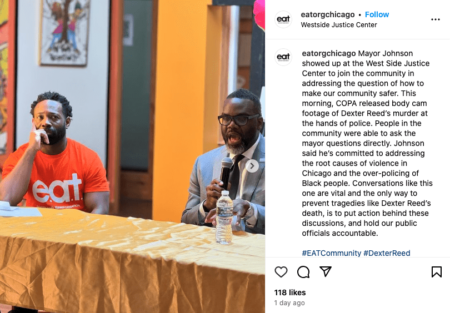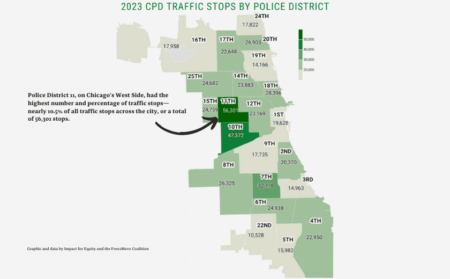Chicago Public Schools has repeatedly violated state law over the use of physical restraints of students, “overwhelmingly failed” to train its staff properly and continued the practice despite multiple directives this school year from the Illinois State Board of Education to stop, the state agency alleged in a letter to CPS obtained by the Tribune.
“CPS’ complete disregard for the health and safety of its students and blatant violation of state law is unconscionable,” an ISBE official wrote to CPS CEO Pedro Martinez.
That was in the midst of a state investigation into CPS’ use of restraints and student seclusion that wrapped up on April 18 and concluded that, among other violations, the district “failed to implement appropriate physical restraints,” used the practices “without imminent danger” and in some cases failed to provide required notice to parents or to report or review such instances.
Those violations were outlined in an email sent Friday evening to CPS parents and guardians, which began by stating ISBE “has required the District to distribute the following notice.”
CPS did not immediately respond to requests for comment.
The letter from ISBE to Martinez, dated Nov. 30, alleged wide-ranging failures in specific uses of physical restraint, in how the district documented and reported instances and in the training of staff as mandated by state law, which specifies two days of in-person training before someone is certified to administer physical restraints.
“CPS admitted that it failed to conduct in-person training at all during (the 2021-22 school year), subjecting 94 students who were involved in 160 incidents to unlawful physical restraint … that pose significant health and safety concerns to those individual students,” the letter states. That included the use of “unlawful supine restraint,” in which students are placed on their back and held down.
For the current school year, CPS provided the legally required in-person physical restraint training to more than 1,000 staff members, but nearly 400 of them only got one day of the mandated two-day training, according to the ISBE letter. Despite those sessions being limited to security guards, the letter said CPS self-reported that “numerous administrators, teachers, paraprofessionals and clinicians applied physical restraint on students.” This school year through Nov. 10, there were at least 21 incidents where an untrained staff member applied physical restraint to a student, the letter states.
And given the lapses in the district’s required documentation of incidents of physical restraint and seclusion and of staff training, “it is unclear if any physical restraint reported by CPS this year meets this training requirements,” ISBE wrote in the November letter.
Afternoon Briefing
Daily
Chicago Tribune editors’ top story picks, delivered to your inbox each afternoon.
Such findings from ISBE’s monitoring of CPS prompted the state agency to open a “systemic complaint investigation” last October alleging “several violations” of state law related to staff training. At that point, ISBE “mandated that CPS stop the use of physical restraint until it could demonstrate that staff who may need to use physical restraint are trained in its safe application,” the letter to Martinez states.
Yet ISBE contends CPS continued to report the use of physical restraints in the following weeks, despite at least two more warnings from the state education agency.
“CPS provided a wholly inappropriate response on November 9, 2022, to our third directive to halt its unlawful practice physical restraint because it had overwhelmingly failed to train its staff appropriately. CPS continues to defy its legal obligations,” ISBE wrote.
CPS also didn’t disclose the certification of safety care trainers and “would not release the training materials” to ISBE, according to the letter, signed by ISBE Assistant General Counsel for Student Care Lisa Armonda.
“More concerning is that the staff who are physically restraining students have not been identified by CPS as staff that require this training,” ISBE wrote. “Teachers and paraprofessionals are the staff members who most often are called upon to restrain students.”
ISBE’s November letter notes that in 2019, the agency issued a “letter to the field” stating that the “practices of isolated time-out and physical restraint have been misused and overused to a shocking extent; this must stop today.” At the time, the state adopted emergency rules that mandated the in-person training before a staff member can administer a physical restraint. Those remained in effect, the letter stated.
ISBE’s 2019 directive came out a day after the publication of the Quiet Rooms, a Tribune and ProPublica Illinois investigation into the use of seclusion in schools. After a 2020 follow-up report on the misuse of physical restraint in schools, Illinois lawmakers voted to further limit the use of seclusion and the face-down restraint of students.






